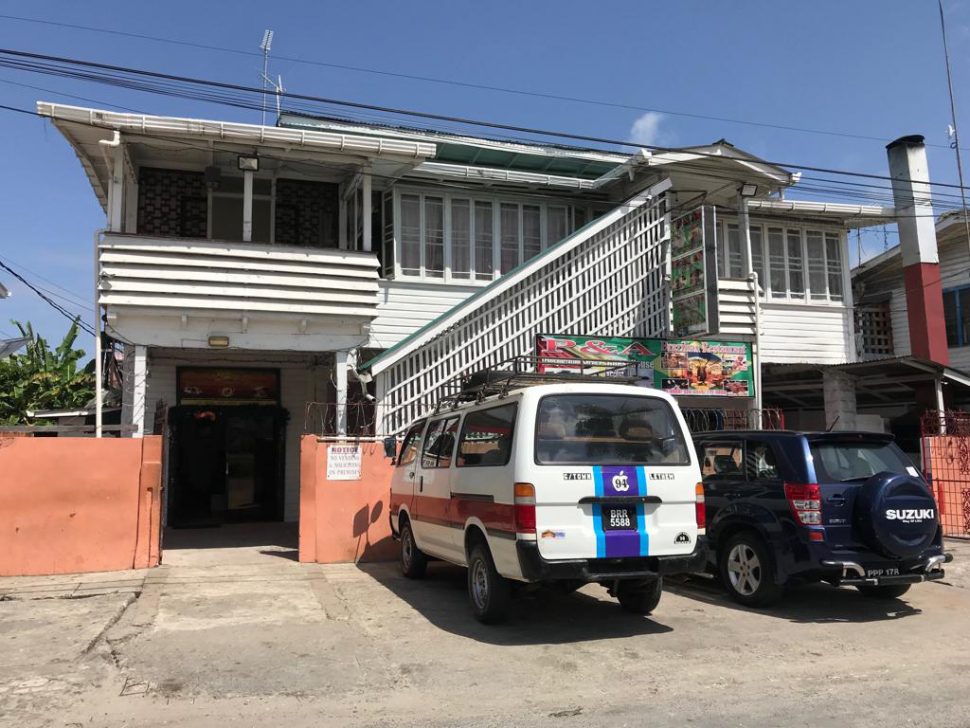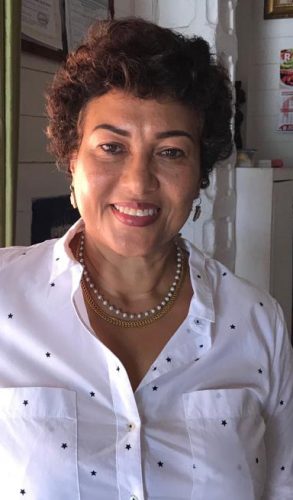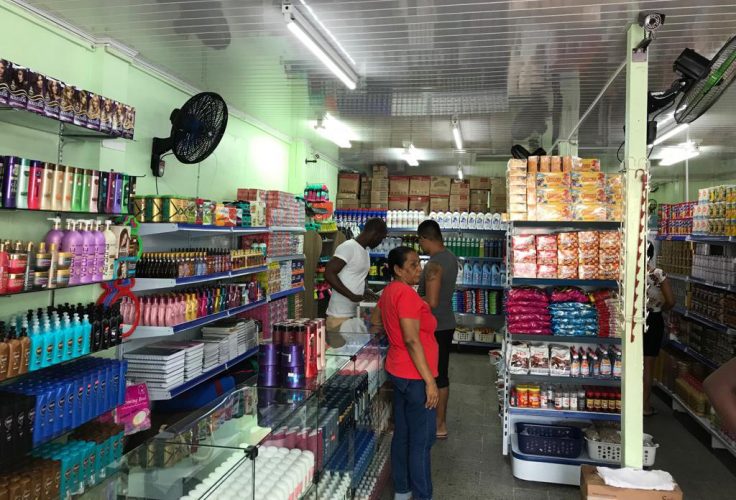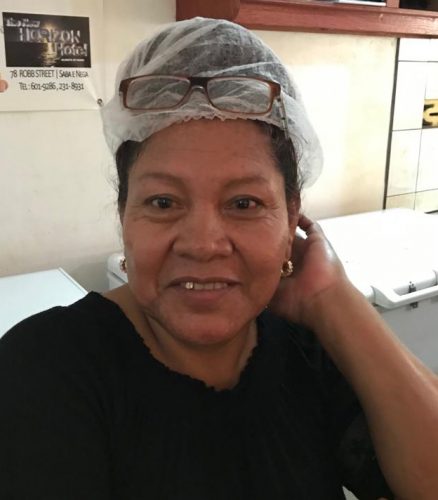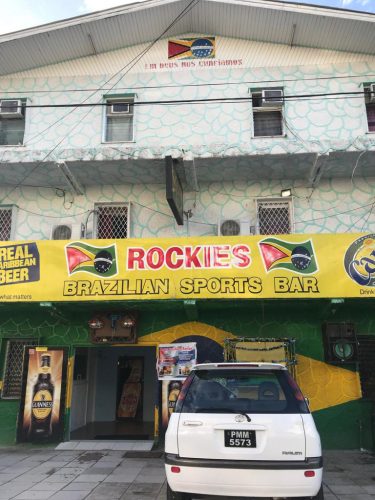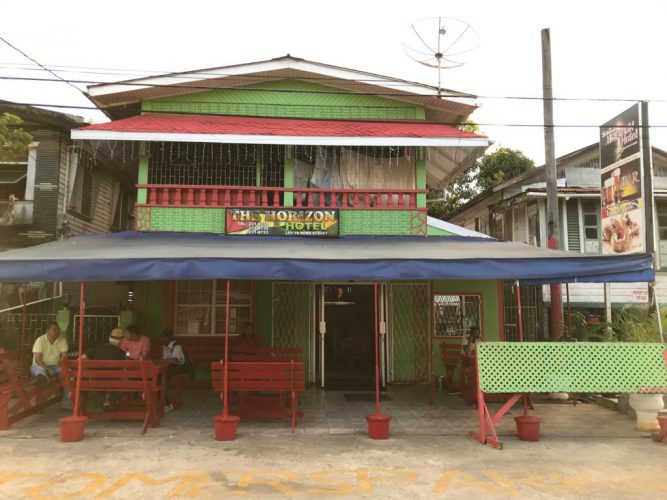Chances of seeing groups of Brazilians congregating in the bustling capital are very slim these days, and business have reported a decrease in the numbers of those travelling to the city.
A few years back, this was not the case, as Brazilians poured into the city and could be seen liming at popular spots such as Rockies Hotel, Sunflower Restaurant, at businesses along Robb Street, particularly between Light and Oronoque streets, and at many stores on Regent Street.
The obvious decline in the numbers has taken a toll on niche businesses which offer accommodation, transportation and culinary services to the target group. Businesses have attributed the decline in visiting nationals from Guyana’s southern neighbour to the changed fortunes of mining camps, fluctuations in the price of gold and the documentation required for Brazilian miners.
It was also suggested that because of the “constant police harassment at checkpoints,” many Brazilians who work in the interior have opted to limit their travel to the city. It was pointed out, however, that there are still many Brazilians living and working in the mining regions located in the hinterlands.
Some hotels that once catered to the accommodation needs of visiting Brazilians have pointed out that the majority of the hotels’ population are now Cubans.
Decline in customer traffic
But despite this development, there are a few Brazilians who remain in the city and have sought employment with operating businesses.
“Business has been slow… I [renovated] the hotel, put in air condition, enhance the rooms but the business is slow,” said Osniel Azcuy, the new proprietor of the popular Rockies Hotel on Light Street.
He noted that while Rockies was known as a popular recreational spot that catered to adult entertainment, he has tailored the hotel to accommodate families.
“Rockies was known as a big sports bar, but now I have made it comfortable for families… there is still the bar and club but that is inside,” Azcuy said.
Asked what the possible reason was for the decline in business, he explained that mining in the interior has gotten difficult with enforcement in place. “In the mining area it is not like before, you are not finding the gold and officers are watching you,” he related.
Even with rooms as low as $2000 per day, Azcuy lamented that business has slowed down. He said that he noticed the decline just over the last year and a half.
“When I started and took over the business a few years ago, it was good business but now they are not coming,” he stressed, while explaining that many opt to return home with their families after spending months away in the remote areas. He pointed out another factor for the return of Brazilians to their native land is the danger of working in the interior, making reference to criminal activity.
Over at The Horizon Hotel, located at 78 Robb Street, a group of Brazilian men were seen consuming alcoholic beverages as they relaxed.
In the rented building, the owners of the hotel, Sebastian Odiassis and his wife Radiante, also operate a restaurant and gift shop.
They have been here in operation for three years and like Azcuy, lamented the slowdown in business. They noted that while some rooms of the hotel were occupied, it was just for short stays.
“They are not staying like before, they come and spend a night or two and that is it. They don’t spend weeks anymore,” Sebastian said to Elizabeth Hendricks, who translated during the interview.
He explained that they have seen better days, while pointing out that only three of the 12 rooms at the hotel were occupied.
At the establishment, rooms are air conditioned and are available as single and double units. Prices for the rooms start at $5000 per night.
“Brazilians are just not travelling anymore. It is hard at police spots; you have to stop and check, stop and check. It is harassing when you have to travel on the road from Lethem to Georgetown and the road is no good neither,” he disclosed, in response to the question on the decline in travel between Georgetown and Lethem.
In some cases, Stabroek News was told that the Brazilians are harassed because they would have overspent their time in the country. “With their documents out of order they are harassed by the police at every checkpoint, and this makes them stay away from travelling through the trail. Most times, when they are coming out of the mining areas, they are coming to Georgetown in preparation to return home,” Hendricks explained.
Hendricks, who hails from the North West District, stated that because of robberies, she had to close her small mining operation. “I got robbed three times: one time in Georgetown and two times in the mining camp. I got very scared and after the business got slow, I just closed it down,” she related. Hendricks is now an employee of The Horizon Hotel.
According to her recount, many
persons who have claims would withdraw their permit, forcing the miner to search for new mining grounds. In most cases, it happens after they would have made a discovery of gold, she said.
“Also, it is hard when you are not making any large discovery and you have expenses to cover. You have to pay to use the mining area, buy fuel, pay employees and yourself plus supply ration. It is very difficult. This is why many are returning home,” explained Hendricks.
Diversion from trail
Like the accommodation sector, businesses which provide transportation services between Georgetown and Lethem via the trail have also been impacted negatively.
“Currently, the business fluctuates. It is good some days and bad some days. People have eased up travelling using the trail and those who can afford the flights opt for that,” said Adele Ward, co-proprietor of P&A Transportation Services, located on Church Street.
Ward alluded to the deplorable road, lengthy travel time and police harassment against Brazilians as some factors that contribute to the decline in travel via the trail.
According to Ward, Brazilians who are guilty of overstaying in the country for a few months are the ones who are harassed by the police.
“Sometimes you have some of them (Brazilians) who would have overstayed like a three months or little more and they are harassed by the police. In many instances, they are travelling to Georgetown to return home. But there are five police checkpoints along the trail and sometimes they are harassed at all of the stops,” Ward stressed.
“Trans Guyana Airways have four daily flights from Lethem to Ogle and once they can afford the flight they take the flight. The journey is shorter and they don’t get harass like when they are travelling on the road,” she pointed out.
A flight from Lethem to Ogle would cost a passenger $30,000 one-way, while the bus fare is a fraction of that amount. Ward offers daily transportation services to her clients, who she said are not only Brazilians but also locals and other foreign nationals.
She also stated that there are peak seasons when it comes to travelling. The seasons, she pointed out, are December, April, June and July/August.
Ward, who also provides accommodation facilities at her Church Street location, like other accommodation providers, indicated that the sector has seen a steep decline with persons staying.
But to cushion the decline in travel, she said she would transport rations to places like Iwokrama, Surama Eco-Lodge, and businesses in Annai.
Cassa Mato Grosso
In addition to the businesses catering to the needs of Brazilians residing in Guyana, is supermarket ‘Cassa Mato Grosso’, located at 36 Robb Street, Bourda, Georgetown.
With stocked shelves of genuine products imported from Brazil, the supermarket can be best described a lifeline for the Brazilian community. Products range from food items to clothing and cosmetics.
When Stabroek News visited recently, there were few customers and saleswoman, Mia Bernard, explained that business has been fluctuating.
“There isn’t any mining going on this month because they had closed for the holidays but when they return to the camps, we will have more customers in store,” she said.
Bernard explained that they have been servicing the Brazilian community in Guyana for over 15 years and offer retail and wholesale services.
“We would sell wholesale to the miners. Sometimes we take their orders and send it because they can’t come out of the mining area to do their shopping,” she explained, touching on the operation of the business.
Asked if they have seen any signs of decrease in business, she responded in the affirmative, while noting that business is seasonal.
“There has been a slowdown for the past year but it is not a big drop. We notice with the dredges not working, the business has slowed down a bit but that is how it is,” she explained.
She noted that they had a second branch in the interior but due to the decline in business, that operation was closed.
Despite the decline in steady business, the entities said they are sticking around to provide a service to those who remain in Guyana.
